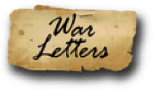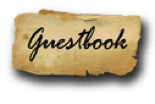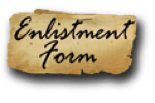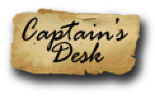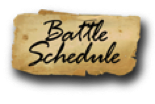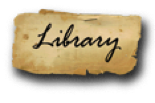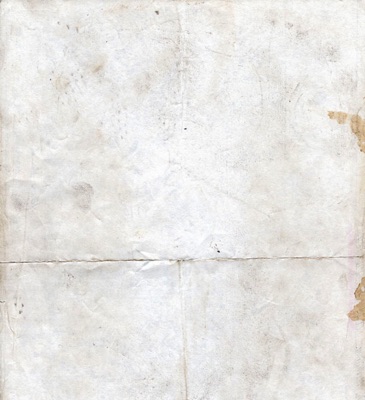




April 11, 2012
Dear Captain Kearney,
You asked, sir, that I recount my involvement in the campaigner’s march at the 150th Shiloh. I put my observations first for those who want just those. A report more detailed follows if you care to read on. If there are those among us who want to try this on future events, I might be persuaded, as the “rush” and the feelings I tell you here are real. They are where I was in mind and feeling. Here is my account, thoughts and memories of the event:
Observations – The view of our size of the column as we marched was impressive even as small as we were we stretched quite far into the distance. We were proud and a sight to behold I’m sure. We slept on arms for two nights straight. We marched in formation with the “clippety-clop” of our hobnails striking the ground and roads creating a nice distraction from our pains. There was dirt and dust we breathed. I questioned, at times, whether this was a good idea for me to have undertaken this campaigner’s march. The heat was grueling and it wasn’t even that hot in reality --- low 80s and 50s at night. The humidity was a tad high so it felt hotter. We were pushed for authenticity all along the way except for when a medical emergency required us to do otherwise i.e. you could walk with hiking shoes when it got really bad, but many boys opted not to for fear of appearing too soft. We carried what we brought and some were smart enough not to carry too much ---- others were not so bright and paid a heavy price for it. Looking back I was somewhere in between. In the future, I would carry even less in the future : poncho, blanket, haversack and canteen would be all one would need. Food and water, unlike the historical reality, were plentiful in my opinion. You were always so hot that you didn’t want food in the first place, just water. You drank water like it was liquid gold. When you got food, it wasn’t for pleasure, it was for sustenance.
Exhaustion from sleeping only 4-5 hours a night was a reality. Insects, spiders, cold, and dampness were all factors at night. In the day you were hot and sweaty, at night cold and damp. You didn’t dare look to see if there were spiders crawling around you, you just brushed them off if you felt them crawling on you at night. You were so tired, you almost didn’t care. Ticks and chiggers were prevalent, but I used my real military training to keep them to a minimum. It worked. There were no lights, only candles. No fires, no hot meals, and no drinks other than water (and even that was a step above the boys of 1862 because it wasn’t putrid or bacteria ridden). I was fascinated by the night sky, the countryside and the men I talked to and sang with along the route. There were men from all over the South which added to the authenticity. The accents were as divergent as they were the same: Arkansas, Kentucky, Mississippi, Tennessee, Alabama, Georgia…wow. We told stories of where we were from: I got nicknamed “Flawrida”. Nicknames became prevalent when someone didn’t know your real name. So it went like “Hey Tennessee what do you think about this?” or “Hey Arkansas boy, what’s with…?” We marveled at the size of the horses, the pageantry of the artillery and the massive size of the oxen that pulled some of our wagons. The uniforms were amazing, everyone having taken pride in the authenticity of what they were carrying or wearing. The talk was kept as authentic as could be; most times we didn’t talk at all because we were too hot, too tired, too much in pain. We concentrated on “just getting over that next hill” or field, fence, etc. It’s amazing what you do to pull yourself through and inspire others. We slept when we could and comforted ourselves when we could. We talked about our experience among us, but always knew we could return to the creature comforts of today vs what those men in 1862 had to endure.
What I found most interesting was that while I did not first feel we could emulate the experience those Rebels of old went through, oddly enough, I think we did brush on the majority of their experiences: we found ways to comfort ourselves, entertain ourselves, inspire, motivate, endure and avoid dangers. We suffered the physical pains and ailments, the lousy food (and enjoyed the good food like sweet corn!) and tendered to each other and even carried the packs of our comrade in arms when they wanted to continue but could not without help. I ultimately felt a feeling of accomplishment. I hadn’t marched like that since the real army back in 1987. I recall with bittersweet memory the march, but interestingly, would do it again. I longed for the company of you boys of 2d Fla. Co. E and felt it would have been an even better experience to have shared with my Civil War family, but the Kentuckians were a good group of guys. I managed to make friends with a Private Sloan from Tennessee and his band of brothers: those Tennessee boys were so hardcore, I began to think this wasn’t acting for them. Their uniforms were spot on and all seemed to chew tobacco of some sort. Good men who offered their assistance and joking manner all along the route. I made some great friends. I thought to myself that if we were really IN the Civil War, that some of these men each day would be lost to death and disease and how I feel the pain of the loss of their friendship. I even felt lonely at times lost in those thoughts. I then thought about my family back home. In the morning to come we all did part ways: some falling into a separate march to head off to Fallen Timbers and others to race on toward Shiloh and finish the march. There was a sense of lost friendships going off in different directions. I had to realize this wasn’t REAL, but I must admit, it felt darned real at times….and I knew that is exactly what I should be feeling at that very moment in re-enacting.
I wondered what Pvt. Witt, Schwartz, Maniacci and the rest of you were doing all along the route. 20 miles didn’t seem like much but 5 miles in I realized this would be a task. In the end, we were all issued Confederate money and inscribed our names and that of our relatives who fought in the real Battle of Shiloh. The money was buried in a time capsule at an undisclosed location where, if our route is ever repeated, I was told it could be uncovered. It was a memorial to those of the dead and those of the future who might wish to honor and understand what it was like. I know I did. I knew this was what I got into re-enacting to experience and in that sense I was satisfied. I hope I honored those who gave their last full measure and if I didn’t, I sure did try. I think I felt what they felt, thought what they might have thought and lived, even for just a moment in time, what they lived. The only thing missing was the impending doom of death and battle. That I will likely never know.
8 April 1862
Corinth March to Shiloh
Report
27-28 March 1862
I had loaded my wagon in anticipation of meeting 2d Florida as we joined Gen Johnston’s forces in Mississippi to thwart the enemy’s planned invasion somewhere in western Tennessee. My route would put me through Atlanta at my sister’s farm where I bedded down for the evening and returned to the road early the next morning. I had hoped to reach the town of Shiloh by mid-day on the 28th, which I did. By telegraph, Sir, I received information that you, my dear Captain, had sustained the most grievous wounds at the Battle of Narcoossee Mill and Brevetted Captain W. Alonzo would lead us upon our arrival in Tennessee. As part and parcel of 2d Florida’s advance party, I scouted the area around Shiloh and noted heavy movement of Federal cavalry and infantry not more than two days ride from a little church in Shiloh that I used as a landmark. The area, being heavily wooded near Shiloh, and attempting to stay out of sight of the enemy, I telegraph Brevt Captain Alonzo and advised him of the need for clearing tools so that we might entrench. I was fortunate, being alone, to run into a few of our boys from the 2d Kentucky Regulars; a Pvt. Payne and Pvt. Wysong. They advised they were heading further south to group with CSA troops who were encamped in Corinth, MS that very evening. I decided to fall in with these two men for strength in numbers and offered them a ride on my wagon into Corinth by nightfall. They graciously accepted and by days’ end, we arrived in Corinth and reported to the First Sergeant of the 2d Kentucky! We slept on arms that evening underneath a cool, yet temperate cloudless sky in a beautiful patch of grass on hillside overlooking the town. Sleep came quickly as we were advised that the very next morn we would be marching in-force northward toward the direction of the enemy. Supper consisted of a few pieces of slab bacon, a hard biscuit and water from a nearby stream. The command forbade fires of any type.
29 March 1862
Reveille came early at 0530. We were called to muster with nearly 100 men and about 40 in number of cavalry, caisson and artillery. It was quite the impressive force! We quickly were issued rations for the next two days of fresh corn, cornpone and a few pieces of slab ham. By 0700 our column was on the move and the sun was already high in the sky. The weather was soon to be hot. We had men of all ages and we proceeded northward out of town with many townspeople coming out to greet us and a few photographers along the way. We left under great spirits. The worst part was that the horses were allowed to walk in front of us which had us walking in it deep all along our route! Darned cavalry! Nevertheless, we were happy to have them as they sent out scouts in front of us for a ½ mile or so to ensure the safety of our route. The rear was our responsibility and we performed it well as a group of infantry lagged behind the rest of us on the march to guard the rear. Truth be told it was hotter than Hades and those boys couldn’t keep pace. Luckily, a water wagon was with us the entire march. We learned, at this point, the march was just about 20 miles to end. We were to march all day that Thursday and halfway into Friday morning before reaching our destination. We reached about five miles into the march when myself and several other men fell due to heat exertion. Age was no factor as some boys as young at 16 were the first to require a ride on the wagons --- -which we graciously accepted.
By mid-day I had cooled enough to return to the marching ranks. The columns, stretching ¼ mile long, reached a farm at a cross roads with much needed shade and a stream nearby. The farmer himself was glad to see us and, though his name escapes me, he was very hospitable. He provided feed for the horses and it was here that a two hour rest was taken and food for the men. I caught a quick nap for about an hour and the boys who required medical attention for their feet (many had blisters) and heat illness were tended to by an ambulance…two of them in fact! We learned just before resuming our march that most of those who had fallen would not return to the march. Our ranks of infantry fell to about 40, yes, 40! One man had blown our his knee, many had blisters the size of coins and still many had succumbed to the heat. I decided to tough it out and return to the marching order, which I did. We resume our march by 3pm.
We trudged on for a few more hours, many complaining, but most of us singing with joy: Lorena, Shenandoah and a few other songs I’ve heard around 2d Florida’s camp fires. Spirits were high among those left. We marched across the very path that our predecessors had taken 150 years ago. Fields, fences, farms, roads and by-ways. Many boys decided that there loads were too heavy and began to drop whatever items they could with the wagons. We were all hot, soaked with sweat through our uniforms and our feet were tired, shins aching, toes blistered and boots were heavy. Our pace was quick at times and grudgingly slow at others depending on our pep. Water was becoming scarce.
We reached our next camp area at the crossroads where the two great columns of the CSA Army would have converged before battle near a town called Mickey’s. There, a farmer whose family had owned the four corners since before the Civil War, rallied our spirits with tales of the farm’s history and what his relatives had said in diaries about the armies marching past their doors for a full day and into the night. It was quite the interesting history lesson and was much enjoyed by all. We were now down to 20 men. The Kentuckians and myself included. The farmer offered his land for us to bed down and we all decided on a grassy area I called Sleepy Hollow as it was tucked between a line of two forests in a low lying grassy nook. We pitched camp (again sleeping on arms) but lite fires with great fervor. There were many fires, literally, as far as the eyes could see. A contingent of woman dressed in period clothing brought us sugar cookies and sweet potatoes for dinner. We were overjoyed. Many men peeled off their shirts and dried them on the branches of the trees around us a fog the settled in.
It was a very cool night as the heat of the day escaped into the night sky. The stars were the brightest I’ve ever seen. I laid down my gum blanket, then my wool blanket, took off my depot jacket, wrapped by wooden canteen in it and used it as a pillow. I wrapped myself in rubber and wool and laid down with all the wolf spiders and beetles one could enjoy, but resigned myself to sleep. One Tennessean was seen running through camp slapping at his shirtless back screaming about having multiple spiders on him. Oddly, we all laughed (albeit uneasily) and turned in for the night. The night was cold, so I dawned my night cap and slept like a baby.
30 March 1862
I was rudely awakened by the beat of drums to muster and reveille. There was no breakfast: no coffee but whatever we had in our haversacks. Bits of cold bacon and biscuit with water once again. We were informed that the Battle of Fallen Timbers was about 3-4 miles away and we would march and fall into battle around 7am. It was there that I could take no more so I was escorted (along with many others) via ambulance to the muster area just outside the battlefield. Only about 10 troopers finished the march; the hardest of the hardcore from Tennessee, Alabama, Texas and Kentucky. Upon being dropped off at the muster site near Fallen Timbers, oddly and fortuitously, I met the 2d Florida, Co. E marching into battle with musket fire already erupting around us. I fell in with the men and proceeded to battle…worn, weary and all the more experienced.
Respectfully submitted,
Pvt. Jason Montes

